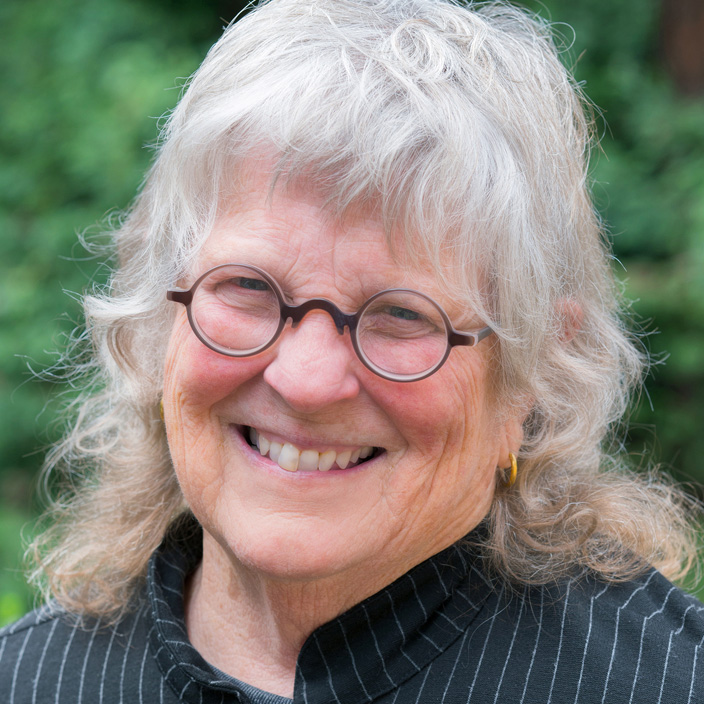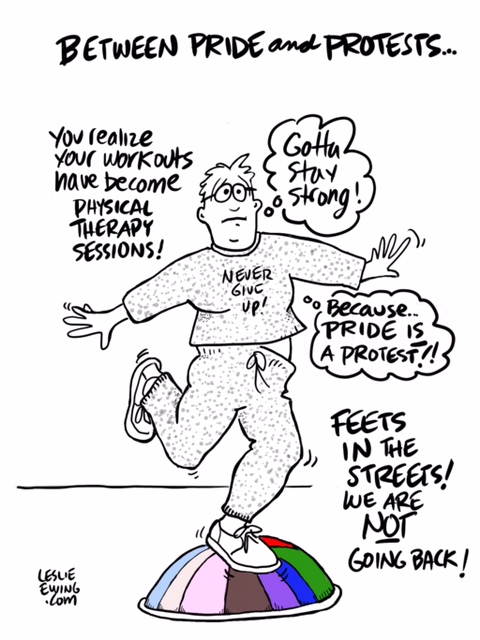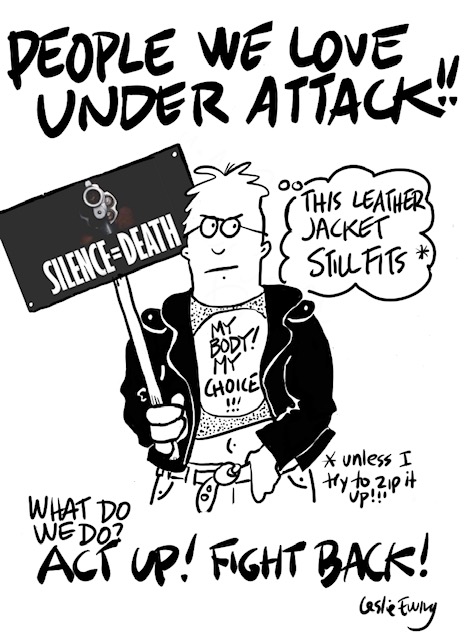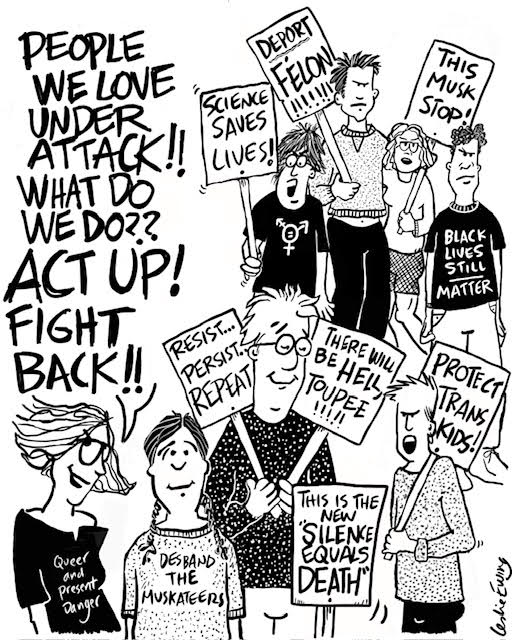
The National AIDS Memorial has always believed in the power of art as a tool against injustice. From the intricate panels of the AIDS Memorial Quilt, to the support of artists through our Mary Bowman Arts in Activism Award, our mission to inspire new generations in the fight for health and social justice is not possible without art.
Leslie Ewing, a National AIDS Memorial Board Member and the former Executive Director of the Pacific Center in Berkeley (the oldest LGBTQ+ center in the Bay Area), uses her talent for cartooning to speak up and address today’s health and social justice issues.
Cartooning for a Cause

Leslie has cartooned for most of her life, starting with school papers in her youth, and extending into her activism work as an adult. “The women’s community was emerging when I first moved here,” Leslie says about first moving to the Bay Area. “It was right after Harvey Milk was assassinated, and it was such an important time to speak up.”
Why does Leslie cartoon? “Most of my cartoons reflect observations and personal experiences as I've navigated coming out and life as an activist during pivotal times for the LGBTQ+ communities,” Leslie explains on her website.
The HIV and AIDS Crisis
As it did for so many in the ‘80s and ‘90s, HIV and AIDS had a devastating impact on those around Leslie. Leslie knew she needed to act out and speak about the injustice and neglect that was killing those close to her.
“One of the things that the AIDS epidemic taught me is that not everyone could do what I was doing, but they could do things that I could never do,” Leslie said about the importance of playing a part. Others could use their resources, or platforms, or scientific knowledge to make a difference in the fight against AIDS. Leslie knew she could use her art. The important part was doing something.
Leslie also volunteered with the AIDS Memorial Quilt in its early years. Through that work, she witnessed the power of another form of art firsthand. “Traveling with the Quilt and seeing it over and over again… Hearts were opened. It was a tremendous healing experience. Not a cure. But healing,” she said about her time working with the Quilt.
Seeing the Quilt through an artist’s perspective, Leslie felt the emotion it inspires in different ways. “When you see it on a wall, it’s art,” Leslie explains. “When you have it on the ground, it’s a graveyard. It’s a different experience.”

The Importance of Art Activism Today
“It’s time to get back on the street,” Leslie says about the importance of speaking up in today’s complex world of health and social injustices.
Leslie continues to cartoon as a tool for bringing attention to the seemingly never-ending variants of hatred and stigma. “I don’t charge for my art. I give it away. I send my art out every month to community leaders,” Leslie says about how she is getting the word out today.

SPEAK UP! If you have an artist’s mind and something to say about health and social injustices, follow Leslie’s example and fight for the change we need in the HIV/AIDS crisis and beyond.

